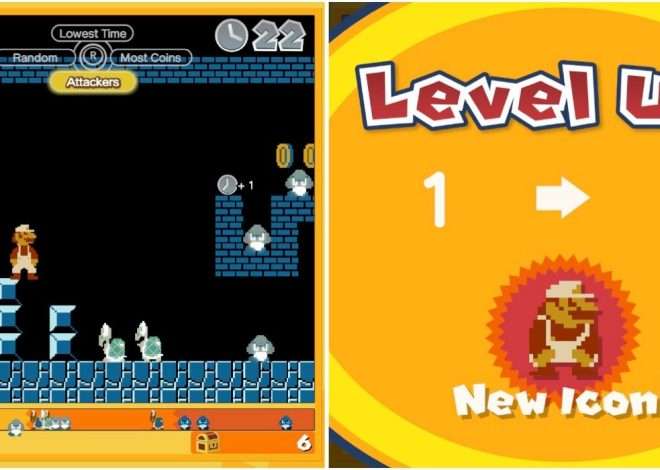The Loot Box Debate: Senator’s Bill Sparks Controversy in the Gaming Industry
The recent introduction of Senator [Senator’s Name]’s bill regarding loot boxes in video games has ignited a firestorm of debate within the industry. This proposed legislation aims to regulate the controversial practice‚ causing significant anxiety among developers‚ publishers‚ and players alike. The implications are far-reaching‚ potentially altering the business models of numerous successful games and raising complex questions about consumer protection and free-to-play mechanics. The uncertainty surrounding the bill’s potential passage has created a climate of apprehension and strategic planning across the gaming landscape.
Understanding the Loot Crate Controversy
Loot crates‚ randomized virtual items offered in exchange for in-game currency or real-world money‚ have become a ubiquitous feature in many popular video games. While some players find them a fun and engaging aspect of gameplay‚ others criticize them as predatory gambling mechanisms‚ particularly when targeting young and vulnerable audiences. The potential for addiction and financial exploitation is a major concern‚ driving the push for stricter regulations. The debate centers around whether loot crates constitute gambling‚ and if so‚ what measures should be taken to mitigate potential harm.
The Arguments For Regulation
Proponents of the Senator’s bill argue that loot crates exploit psychological vulnerabilities‚ particularly in children and adolescents. The unpredictable nature of the rewards‚ coupled with the potential for significant financial investment‚ mirrors the mechanics of gambling. They emphasize the need for transparent disclosures about the odds of obtaining valuable items‚ alongside measures to prevent excessive spending. Furthermore‚ advocates for stricter regulations point to the potential for addiction and the impact on mental health‚ calling for stronger safeguards to protect vulnerable players.
- Protection of minors from exploitative practices.
- Transparency regarding drop rates and odds.
- Prevention of compulsive spending and gambling addiction.
The Arguments Against Regulation
Opponents of the bill contend that it represents excessive government intervention in the video game industry. They argue that loot crates are a form of optional in-game cosmetic enhancements‚ not fundamentally different from other microtransactions. The industry maintains that players are not forced to purchase loot crates and that responsible spending habits should be encouraged through education and self-regulation rather than legislation. Moreover‚ some argue that the bill could stifle innovation and negatively impact the free-to-play model‚ potentially leading to job losses and reduced game development.
Concerns exist regarding the potential for unintended consequences; Overly strict regulations might inadvertently harm smaller studios‚ limiting their capacity for innovation and potentially leading to the closure of smaller developers. This would be a significant setback for the broader video game industry‚ and raise concerns among those who have invested in these projects. The complexities of the debate are amplified by the global nature of the gaming market‚ with varying regulatory landscapes across different countries.
The Potential Impact on the Video Game Industry
The proposed legislation could significantly reshape the landscape of the video game industry. Many game developers rely heavily on microtransactions‚ including loot crates‚ to generate revenue and fund ongoing development. The bill’s passage could force a reassessment of monetization strategies‚ potentially leading to a reduction in the use of loot crates or a complete shift towards alternative business models. This could impact game development cycles and the overall quality of gaming experiences.
Economic Considerations
The economic implications are significant. Companies that heavily rely on loot crate sales might experience a substantial decrease in revenue‚ potentially affecting their profitability and leading to job cuts. The shift towards alternative monetization strategies‚ such as subscription models or expanded cosmetic options‚ would require substantial investment and time. This would be a large undertaking for many already established companies‚ let alone smaller development teams.
Creative and Design Implications
The shift away from loot crates could also impact the creative process. Game designers might need to rethink how they incorporate rewards and progression systems into their games. The focus might shift towards more traditional methods of monetization‚ potentially influencing game design and the overall player experience. It could lead to more balanced gameplay systems that don’t rely on potentially exploitative mechanics.
International Perspectives and Legal Precedents
The debate surrounding loot crates is not confined to the United States. Many countries worldwide are grappling with similar issues‚ resulting in a patchwork of regulations and legal interpretations. Some countries have already implemented stricter rules regarding loot crates‚ while others are still debating the appropriate course of action. This complex legal landscape presents challenges for international game developers‚ who must navigate a variety of regulations in different jurisdictions.
Comparative Legal Analyses
Examining the legal approaches taken in other countries provides valuable insights. A comparative analysis of existing regulations in various jurisdictions can inform the ongoing debate and help shape future legislation. Understanding how other countries have addressed this issue can pave the way for more effective and comprehensive solutions‚ avoiding pitfalls and maximizing positive outcomes.
The Future of Loot Crates and the Gaming Landscape
The outcome of Senator [Senator’s Name]’s bill remains uncertain. The debate is likely to continue‚ with further discussions and potential amendments to the proposed legislation. The future of loot crates in video games hinges on the balance between protecting players and preserving the creative freedom and economic viability of the industry. The result will significantly shape the future of the gaming industry for many years to come.
- Increased transparency and consumer protection measures.
- Shift toward alternative monetization strategies.
- Potential for innovation in game design and player engagement.
Regardless of the bill’s fate‚ the controversy has already spurred significant changes within the video game industry. Many developers are proactively implementing more transparent practices and exploring alternative monetization methods. This reflects a growing awareness of the importance of responsible game design and player well-being. The gaming industry will continue to adapt and evolve in response to the ongoing challenges and evolving societal expectations.
The debate surrounding loot crates highlights a larger conversation about the ethical considerations of game design and the responsibilities of game developers. Balancing player engagement with ethical practices is crucial for the long-term health and sustainability of the industry. The focus on responsible gaming practices will likely continue to grow‚ shaping the future of game development and player experience. This will lead to more responsible practices and potentially more enjoyable experiences for players in the years to come.
Ultimately‚ the resolution of this debate will have a profound impact on the gaming industry‚ affecting everything from game design and development to the economic viability of various business models. The ongoing discussion serves as a reminder of the need for ongoing dialogue between game developers‚ policymakers‚ and consumers to ensure a healthy and sustainable future for the video game industry.
The Senator’s proposed legislation‚ whether passed or not‚ will irrevocably alter the conversation surrounding loot crates and responsible gaming practices. The increased scrutiny and public awareness surrounding this issue will likely lead to more ethical and transparent practices within the video game industry. The future of gaming hinges on a collaborative effort to balance player enjoyment with responsible design and monetization strategies.
The long-term effects of this legislative push remain to be seen. However‚ one thing is certain: the gaming world will continue to evolve‚ adapting to changing regulations and consumer expectations‚ ultimately aiming to create a more ethical and enjoyable gaming experience for players of all ages.



